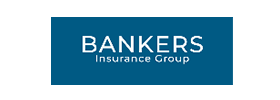Construction Business Insurance
Secure your contracting business with the right insurance coverage. Whether you’re a general contractor, electrician, or roofer, construction business insurance protects against jobsite injuries, property damage, lawsuits, and equipment loss.
Choose the right coverage from trusted insurance providers.































Top construction contractors we insure
Don't see your profession? Don't worry.
We insure most businesses.
Recommended Coverage for Contractors and Construction Firms
In the construction business, having the right insurance helps companies and contractors recover from theft, injuries, and lawsuits. Meeting state requirements with the right policies ensures peace of mind and keeps your business protected.
Business owner’s policy
This policy conveniently bundles commercial property and general liability insurance into one cost-effective plan for dealers. A BOP is ideal for securing auto shop insurance and shielding businesses from financial losses.
Under this plan
Customer injuries
Damaged customer vehicles
Damaged business property
Commercial auto insurance
A policy designed for dealers and repair shops helps pay for property damage and medical bills after an accident. It is required in many states for businesses that own cars.
Under this plan
Car accident repair costs
Vandalism and theft
Weather damage
General liability insurance
This policy covers basic liabilities for auto service businesses, protecting against dealer risks like customer injury at a repair shop. To maximize savings, businesses can bundle it with property insurance or a business owner’s policy for broader coverage.
Under this plan
Customer injuries at a repair shop
Accidental vehicle damage
Slander and advertising injuries
Workers’ compensation insurance
Workers’ comp is required for auto shops in almost every state to cover employee injuries and related costs. It protects both employees and sole proprietors by handling work injury costs that health insurance might deny.
Under this plan
Employee medical expenses
Partial wage reimbursement
Lawsuits
Contractor’s Tools and Equipment Protection Plan
Contractor’s tools and equipment insurance helps protect your construction gear no matter where you go. This policy keeps your tools and equipment safe while you’re moving them (in transit) or using them at a jobsite. To qualify, your items usually need to be valued under $10,000.
Under this plan
Equipment less than five years old
Mobile equipment
Small tools
Professional Liability Protection Plan
Professional liability insurance for contractors, also known as errors and omissions insurance, protects against financial losses when a construction mistake or oversight causes a lawsuit. This policy is key for handling claims related to your work and promises made to clients.
Under this plan
Accusations of negligence
Failure to complete construction
Failure to use promised materials
How much does insurance cost for construction businesses?

The cost of construction insurance for businesses and contractors varies depending on a number of factors. These include what services are offered, what kind of equipment and property is used, whether the company handles residential or commercial projects, and other aspects like revenue, location, employee count, and types of policies needed.
Several factors affect pricing, including:
- Services like painting, carpentry, or excavation work
- Type of business equipment and property such as backhoes, bulldozers, and forklifts
- Whether work is commercial or residential
- Total business revenue
- Location of the company
- Number of employees
- Type of insurance coverage purchased
How do I get construction business insurance?
Getting insurance for your construction business is simple and straightforward.
Whether you’re a general contractor, electrician, or roofer, securing construction business insurance is easy with just a few details. You’ll need to provide your annual revenue, payroll, and other basic information. Follow these simple steps to get started with Insureon:
- Complete a free online application
- Compare free quotes and choose a policy that fits your needs
- Pay for your policy and download your certificate of insurance
With Eagle Nation licensed insurance agents, you’ll get the best policies from top-rated U.S. providers, ensuring you have the right coverage for your business, whether you’re a handyperson or a commercial builder with multiple employees.
Two ways to start your coverage

Quotes online

Talk to an agent
Verified business insurance reviews
Hear from customers like you who purchased small business insurance.
Common questions about construction business insurance
Construction businesses and contractors often need various types of insurance coverage to ensure comprehensive protection. Here are some common policies they may need:
- Builder's risk insurance: This policy covers structures under construction and materials at a jobsite. Sometimes referred to as course of construction insurance.
- Contractors pollution liability insurance (CPL): CPL covers legal costs related to pollution harm at a construction site, also known as environmental insurance.
- Commercial property insurance: Protects your business’s physical location and business personal property (BPP) at that location, including construction equipment. This can be bundled with general liability insurance or added as a BPP endorsement.
- Inland marine insurance: Covers tools and equipment in transit, stored off-site, or at the jobsite. This includes contractors' tools and equipment insurance for items valued under $10,000 and installation floater insurance for materials being installed.
- Commercial umbrella insurance: Umbrella insurance increases coverage for general liability, commercial auto, and employer's liability policies once the policy limit is reached.
Mobile equipment endorsement: This covers forklifts, tractors, and other machinery driven on public roads in addition to your commercial auto policy.
Construction businesses often need licenses, permits, or bonds to comply with state and local laws. The requirements vary based on the type of work you do and your location. For instance, certain states may require a license for plumbing or electrical work, or you may need a town permit for tasks like pesticide application or tree removal.
During the licensing and permit process, you might also be required to:
- Pass an exam
- Obtain a contractor surety bond
- Purchase insurance
As an example, general contractors in California must submit proof of insurance and a surety bond in order to be licensed.
Maintaining construction business insurance offers several long-term benefits for your company. Most importantly, it ensures you're always protected against fires, theft, injuries, and lawsuits that could potentially ruin your business. Additionally, many projects require contractor insurance to bid, work with clients, or even obtain a license. Being insured not only keeps you ready for any project but also places you ahead of competitors in the eyes of your clients.
Moreover, insurance companies typically charge higher premiums when coverage is started and stopped frequently. By keeping continuous coverage, you can reduce contractor insurance costs and effectively manage risks.
The responsibility for insuring a building site can fall on the contractor, building owner, or property developer, depending on the specific circumstances of the construction project. Regardless of who holds the insurance, it's crucial to ensure you're protected in case of a lawsuit or any other incident.
If you're not purchasing the insurance yourself, be sure you're listed as an additional insured on the policy. This is especially important since anyone involved in the project, including subcontractors, could be faced with legal expenses.
Construction businesses and contractors that purchase commercial auto insurance often:
- Own a vehicle titled to the business
- Drive to and from worksites
- Carry tools, equipment, or products used for work
- Transport clients or employees
- Rely on delivery drivers or couriers
- Check your state laws to determine when coverage is required.

"The business owner’s policy was affordable and included both property and liability coverage. The process was quick and the customer service was excellent. Highly recommend!"